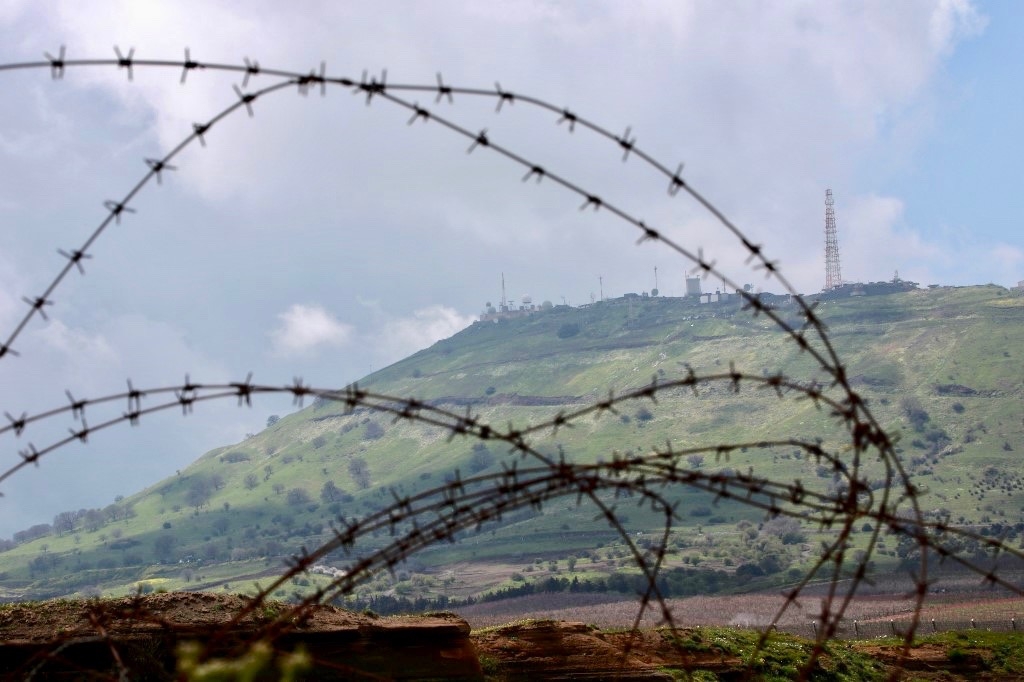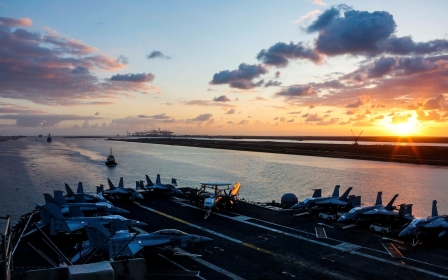Israel launches strikes on southern Syria: Reports

Israel launched air strikes on southern Syria late on Saturday, a war monitor was cited as saying by AFP, prompting air defences into action.
Syrian air defences targeted projectiles coming from "occupied territory", state news agency SANA said, referring to territory held by Israel.
Israel's military declined to comment on the report. Still, Israel has been more open in recent months about targeting sites inside Syria that it says belong to Iran and its Lebanese ally Hezbollah, both of which have forces aiding President Bashar al-Assad, Reuters said.
"Israeli airplanes fired at least three missiles from the occupied Golan," said Rami Abdel Rahman, head of the Britain-based Syrian Observatory for Human Rights.
Two of the strikes targeted a Syrian army brigade that supervises the country's Quneitra province, he told AFP, while the third missile was destroyed by Syrian defences.
New MEE newsletter: Jerusalem Dispatch
Sign up to get the latest insights and analysis on Israel-Palestine, alongside Turkey Unpacked and other MEE newsletters
SANA reported that the strikes came a day after Syrian air defence systems intercepted several other projectiles also coming from "hostile territory".
Haaretz said the reports seemed questionable, and it was possible the Syrian defence systems mistakenly interpreted aerial movements as Israeli strikes. The timing also appeared unlikely as Israel was hosting the Eurovision Song Contest and its aerial defence systems were on high alert to fend off any potential attacks.
Israel deems Iran its biggest enemy and the heavily armed Shia Hezbollah movement as the main threat on its borders.
Israeli officials, alarmed by Tehran's expanding clout next door, have acknowledged carrying out scores of strikes during the eight-year conflict in Syria. Iran and Hezbollah have played a key role in helping Assad's army defeat rebels and militants.
Tensions between Tehran and its regional enemies rose this week after reports of attacks on four oil tankers in the Gulf, sparking concerns about a potential conflict between Iran and the United States, Israel's closest ally.
Middle East Eye delivers independent and unrivalled coverage and analysis of the Middle East, North Africa and beyond. To learn more about republishing this content and the associated fees, please fill out this form. More about MEE can be found here.




